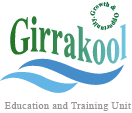28
SeptemberOver Drinking Alcohol Treatment 2.Zero - The subsequent Step
Introduction
Drug addiction is a complex and pervading concern that impacts people, households, and communities globally. Its characterized by the compulsive using drugs despite their particular harmful consequences. Drug addiction is a global issue that transcends cultural, social, and economic boundaries, affecting folks of all ages, races, and experiences. This report aims to provide a brief history of medicine addiction, showcasing its reasons, impacts, and possible solutions.
Factors that cause Drug Addiction
Numerous aspects subscribe to the introduction of medication addiction, including genetic, environmental, and behavioral elements. Genetics play a role in determining your susceptibility to addiction. Analysis shows that specific hereditary factors will make specific individuals more prone to getting dependent on medications. Ecological elements, eg contact with drug abuse inside the family or community, additionally perform a substantial role. In addition, emotional and social aspects, including tension, mental health dilemmas, and peer pressure, can donate to addiction.
Aftereffects of Drug Addiction
Medication addiction features extreme repercussions on individuals and culture in general. At an individual degree, medication addiction can considerably impair one's real and mental health. Drug abuse can lead to persistent diseases, including liver and lung harm, heart related illnesses, and an elevated danger of infectious diseases like HIV/AIDS. More over, medication addiction often causes emotional disorders including despair, anxiety, and psychosis. Also, addiction can strain individual interactions, cause economic uncertainty, while increasing the possibilities of unlawful involvement.
On a wider scale, medicine addiction puts a considerable burden on culture. It impacts healthcare systems, as addiction-related medical remedies and rehab programs are often high priced. In addition, drug addiction plays a part in increased crime rates, as people risk turning to illegal activities to sustain their particular addiction. Furthermore, drug-related accidents and impaired efficiency hinder economic development and development.
Possible Solutions
Dealing with drug addiction needs a thorough and multi-faceted approach. Avoidance attempts should consider education and raising awareness in regards to the risks of drug abuse. Effective techniques consist of school-based prevention programs, neighborhood understanding promotions, and targeted interventions for susceptible populations.
Furthermore, therapy and Alcohol Rehabilitation Medicine options must be made accessible and affordable to all or any those experiencing drug addiction. This calls for establishing rehab facilities, providing guidance and treatment, and guaranteeing the availability of medication-assisted therapy approaches eg methadone or buprenorphine. Help companies and aftercare programs are important in guaranteeing long-term data recovery.
Additionally, there's a need for stricter regulation and control into the pharmaceutical industry to prevent the abuse of prescription medications. Ensuring the availability of alternative pain management methods can decrease the reliance on opioids, decreasing the threat of addiction.
Conclusion
Medication addiction is a complex issue with profound effects for people and culture. Its causes tend to be multi-faceted and require multiple methods to avoidance and treatment. By increasing understanding, enhancing training, enhancing accessibility therapy, and applying stricter laws, community takes considerable steps toward decreasing the prevalence and impact of medication addiction. Combating medication addiction necessitates collective attempts from governing bodies, medical professionals, communities, and individuals to mitigate its results and provide support to those impacted.

